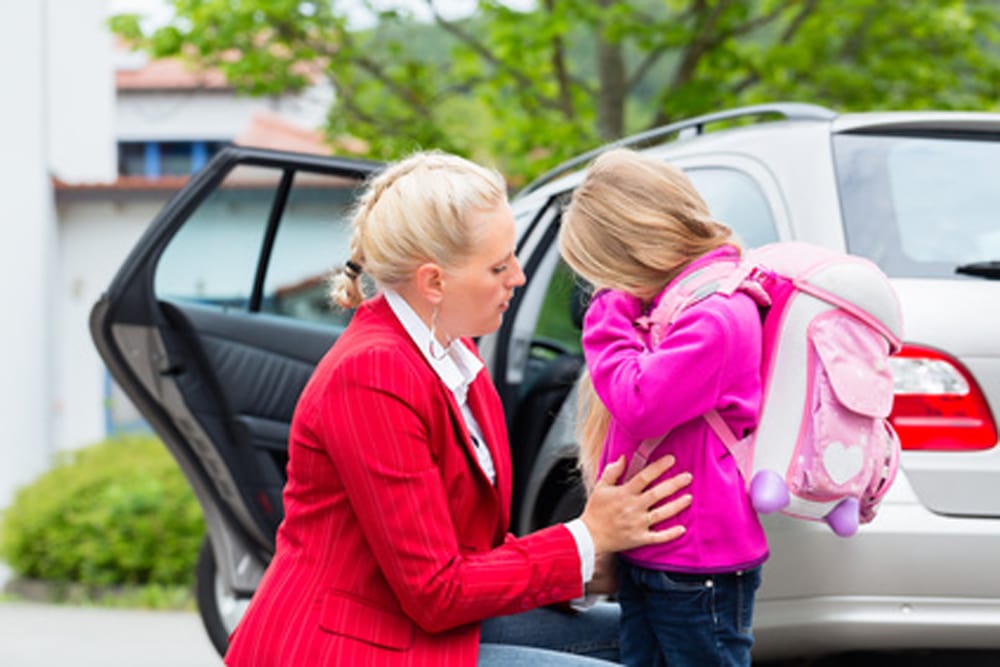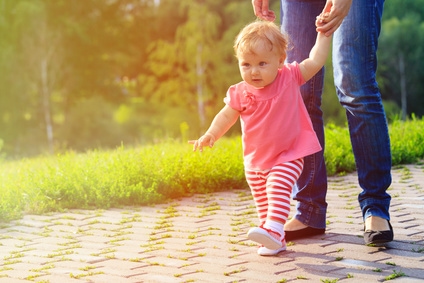Anxiety? What anxiety?
Table of Contents
Children are like emotional sponges, soaking up the feelings of those closest to them. So when there is anxiety in children it’s not surprising especially when there is parental anxiety to which they are particularly sensitive to. It’s normal to feel anxious about the stresses of daily life at times and, even if your kids don’t know the cause, they will very likely be aware that something is bothering you. That may be because you’re disorganised or forgetful, antisocial, unhelpful or just plain grumpy.

Anxiety in children can be confusing no matter what their age as they’ll wonder what’s going on and, typically, think it must be their fault. As well as being upsetting for them, this can undermine their confidence and even affect their school work. There are things you can do to reduce the likelihood of children ‘catching’ your anxiety.
Because there’s a tendency to see anxiety as a weakness or a flaw instead of a normal human response to a perceived threat, we get very good at hiding it. While it’s possible to disguise anxiety symptoms so friends or work colleagues don’t notice them, they’re a bit more obvious at home.”
Behind closed doors, anxiety in children can ‘leak’ into family life in many subtle and not so subtle ways. Children are adept at noticing mood changes and dodging being in the firing line of a parent with a hair-trigger temper.
An intuitive, subconscious early warning system enables children to pick up the cues and clues unconsciously expressed by anxious parents. These then become a source of anxiety in later life. As adults, they may not recognise why those cues and clues in others set off alarm bells whenever they encounter them, just as they wouldn’t have understood what their parent’s anxiety was about during childhood.”
What makes anxiety in children prevalent?
So, anxiety can be catching. And, what’s more, there is a genetic predisposition that runs like a thread through the generations. A combination of nature and nurture determines who gets anxious and what triggers anxiety in children. Those everyday triggers can include any form of change, like moving house, going to a new school, losing pets, grandparents dying, parents arguing and divorce.
This anxiety is intensified if parents allow their own anxiety to be observed by their children. When mum or dad panics in a crisis situation, their children’s security is destabilised and fear can go off the scale when they realise their parents are scared too. So, anxiety is infectious in a group and worrying to an individual.
Immunising children against anxiety
Unfortunately, you can’t just pop your children down to the doctors for a quick anxiety vaccination. It is, however, possible to minimise its effect on them. One of the best ways of doing this is to sort your own anxieties out. Take an inventory of the causes of your anxiety and its symptoms.
Causes may include workplace stress, money worries or relationship conflict. Palpitations, sweating, nausea and shortness of breath are among the physical symptoms. Being short tempered and irritable and ‘self medicating’ addictive behaviours like drinking too much are additional clues.
On reflection, it’s difficult to imagine how any child would NOT be disturbed by these behaviours and symptoms. And now you have a greater awareness of what’s going on, you can reassure your children about their fears or uncertainties as you focus your attention on solutions for your own anxiety.
Managing anxiety
Self awareness is the first step towards managing anxiety. Acknowledging its presence in your life leads to better understanding and can reduce frequency and intensity. You may discover that you’ve been avoiding situations or circumstances that provoke or aggravate your anxiety and realise that this strategy doesn’t make it go away. Better to square up to it and wait for it to pass. This is easier said than done until you recognise that anxiety feeds off itself by creating a fear of the fear. Then you can let it go.

Baby steps
Anxiety in children can easily become overwhelming, particularly if it has more than one cause. When you break it down into smaller component parts, it is much easier to process and disseminate. Bit by bit, you can deconstruct the cause, dissociate from the situations or circumstances which created it and desensitise yourself to the triggers. So, for example, it’s easy to accept that a spider phobia is irrational and illogical.
Then you can mentally rehearse forgetting to remember that you used to be afraid of spiders. And you’ll soon be surprised to discover you’re no longer bothered by the occasional spider passing across your living room floor.Repeating that same story to yourself over and over, over a period of time, makes it stick and overwrites the repetitive programming which triggered the anxiety in the first place.
It’s important to understand that, although the symptoms of anxiety can be terrifying, they cannot harm you.
Using self-hypnosis for Anxiety in children
If a given task or situation is particularly anxiety-provoking, you can use self-hypnosis techniques to manage your symptoms and replace them with calmness, confidence and self-control. These simple hypnotic strategies are very similar to those used to manage stress. They can also be used for generalised anxiety, the kind of free-floating fear that isn’t related to any particular situation or circumstance.
Just by modifying and regulating your breathing, you can create a calm state in just a few moments. This deep breathing method is sometimes described as ‘belly breathing’ and is common to most forms of guided meditation and relaxation. It’s so easy to master, requires no special skill (other than the ability to breathe) and can be used any time, any place. All you need to do is practice following these instructions:
- Close your eyes.
- Breathe in through your nose, fill your lungs completely and hold the air in for several seconds.
- Then purse your lips and gradually let the air out, making sure that you let out as much air as you can.
- Continue doing this until you are feeling more relaxed.
- Then visualise yourself in a place where you felt calm and relaxed in the past or somewhere familiar (at home?) where you feel safe and at ease.
- Allow yourself to focus on this place and how you feel when you’re there for a few minutes.
A second self hypnosis strategy, Progressive Muscle Relaxation is particularly useful with anxiety in children, can be used in conjunction with the deep breathing exercise:
- Lie on your back, tighten the muscles in your toes for 10 seconds and then relax them completely.
- Do the same for your feet, ankles, and calves, gradually working your way up your body until you reach your head and neck.
- Then visualise yourself in a place where you felt calm and relaxed in the past or somewhere at home where you feel safe and at ease.
- Allow yourself focus on this place and the way you feel when you are there for a few minutes.
Other general strategies that you can use to include listening to hypnotherapy audio sessions or classical or chill-out music, taking a hot bath, reading a book or surfing the internet, calling up or meeting a friend, practising yoga or meditation, and playing sports. As you can see, there is no shortage of things that you can do and all of them can help reduce anxiety in children.
Implementing simple lifestyle changes
Simple lifestyle changes can also help to reduce anxiety in children. These might include:
- Simplifying your life, even if this means doing less or doing only one thing at a time.
- Having a schedule and keeping to it.
- Getting enough sleep.
- Exercising regularly (for example, walking, swimming, yoga).
- Eating a balanced diet.
- Restricting your intake of coffee or alcohol.
- Taking time out to do the things that you enjoy.
- Connecting with others and sharing your thoughts and feelings with them.
Given that we’re all resistant to change to varying degrees, it can sometimes be helpful to get some guidance and support with this. Again, hypnotherapy is an incredibly effective way of making positive changes easy and achievable.
Take action
Typically, anxiety in children doesn’t go away on its own. It gets bigger. Your children will notice your anxiety at some point and when they do, there is a possibility they will develop anxiety sooner or later in their life.
Anxiety is very common but, importantly, it is also very ‘fixable’ with the right hypnotic toolbox of techniques and strategies. Hypnotherapy really can transform lives, not just your life but also your children’s life. Once you’ve taken control of your own anxieties, you can help the anxiety in children by helping them to adopt effective coping strategies when they encounter their own fears so they can be quickly resolved before they become habitual, life-limiting habits.
Was this article useful? If so, please share…
